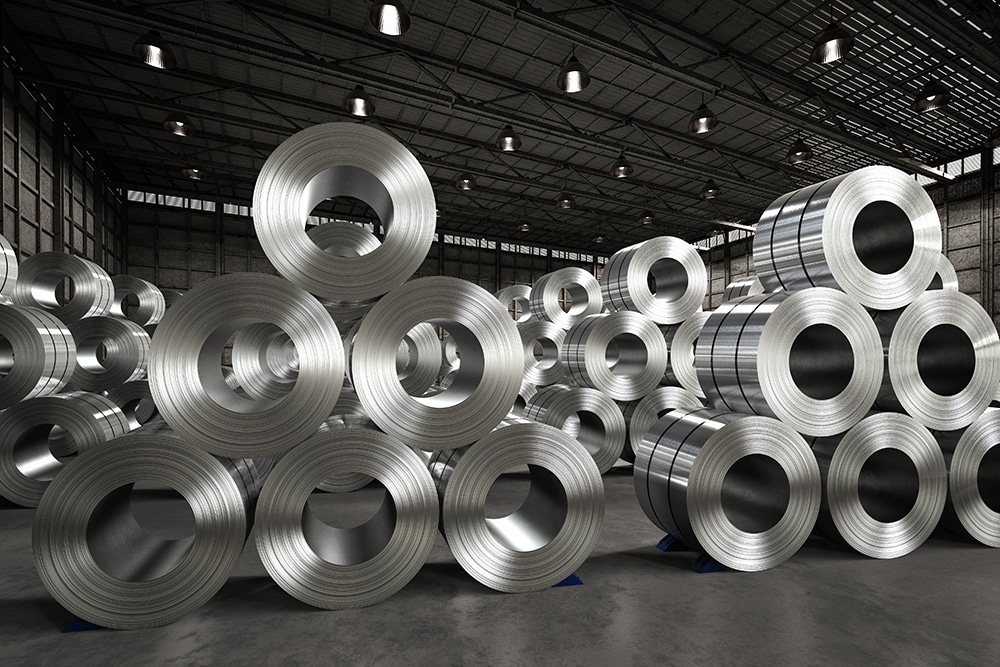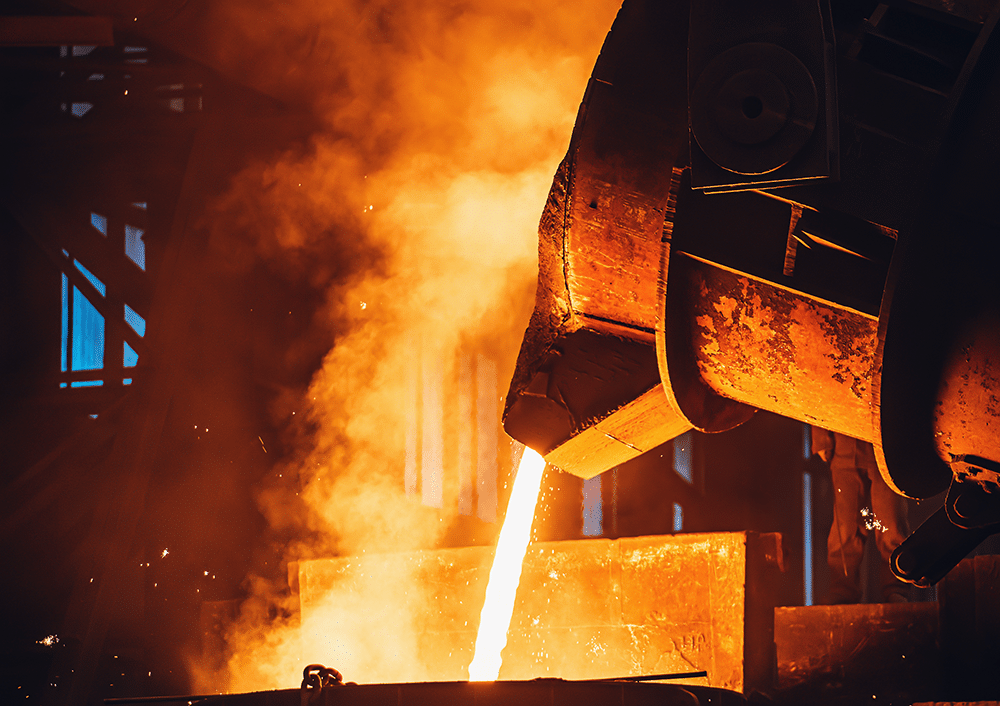Steel manufacturing giant Liberty Steel recently signed a contract with Chinese engineering company CISDI, finalizing a feasibility study to build an electric arc furnace at the Dunaújváros plant in Hungary. Steel production estimates state that the facility would have an annual crude capacity of 1.5 million metric tonnes.
According to a May 16 announcement by the former’s parent company, GFG Alliance, Liberty Steel executive chairman Sanjeev Gupta and CISDI chairman Xiao Peng signed the agreement on the new equipment in Shanghai.
“The contract is essential for Liberty Dunaújváros’ green steel transformation, which includes the installation of a modern EAF as well as the secondary metallurgy and hot strip mill upgrade required to allow the business to deliver high-value products for the automotive sector in Hungary,” GFG noted in its statement.
Put an end to metal price volatility anxiety. Get informed about shifts in the steel industry so you can make money-saving sourcing decisions. Sign up for MetalMiner’s weekly newsletter.
Can a New Furnace Cut Emissions by 80%?
GFG Alliance also stated that the new furnace would cut carbon emissions from the site by up to 80%. The move comes as part of Liberty’s CN30 steel manufacturing plan, which would have the company producing carbon-neutral steel by 2030. A source within GFG Alliance declined to indicate a tentative start-up date and added that the feasibility study would help to determine a timeframe for the first pour.

However, one industry watcher expressed his skepticism over the plan. “Such a study can cost anywhere from 500,000 up to 5 million, and the public effect is already self-sufficient,” the source said, adding that it was irrelevant whether the sums were in euros or dollars. “Plus, if they decide to eventually do something (i.e. they find money), then that’s also useful,” the source remarked.
Another source noted that Liberty’s UK operations have racked up £210 million ($267 million) in losses over the last three years, all of which was shareholder-funded. “So, the group can’t be flush with funds,” they noted. It was also not clear at the time of this writing if the Hungarian government would assist in financing the project.
Dunaújváros Steel Manufacturing Struggled in Recent Years
As GFG Alliance noted in its announcement, the study’s goal is to define technical requirements for the planned EAF and investigate how it would interface with existing production lines, raw material supplies, and environmental impact. The Dunaújváros plant, which is about 85 kilometers south of the Hungarian capital of Budapest, currently has two blast furnaces capable of producing about 1.4 million metric tons per year of pig iron. Meanwhile, two 135-ton basic oxygen furnaces at the site can produce about 1.6 million metric tons of crude steel annually.

The two blast furnaces went off-stream in early 2022 due to a loss of raw coke supplies from its Austrian provider as well as debts which, by then, exceeded Ft500 billion (almost $1.4 billion). This prompted a Budapest court to put the plan into liquidation in late 2022. One of the blast furnaces resumed operation in early 2023 after Liberty Steel started to provide coking coal.
However, financial viability issues reportedly prompted the plant to idle it in Q4 of that year. Changes like these in the global steel industry hold the potential to impact steel sourcing companies, so it’s important to learn what executive teams expect steel procurement managers to do in situations like these.
GFG Alliance Adapts to Demand
The source within GFG Alliance noted that the plant is now operating in campaigns, depending on end users requirements. However, they declined to give any further information. The company’s website notes that a twin-stand vertical caster can produce 1.7 million metric tons of slab in 230mm gauge and in 860-1550mm widths, while Dunaújváros’s hot rolling mill can produce hot rolled coil with a maximum width of 1,540mm and in 1.2-18mm gauges. Further downstream, Dunaújváros can produce cold rolled coil in 0.4-2.5mm gauge and a 550-1,540mm width.
The Hungarian Plant Remains a Major Liberty Steel Acquisition
Liberty completed its acquisition of the Hungarian steelmaker, then called Dunaferr, in October 2023. London-headquartered Liberty offered €65 million ($70.5 million) for the plant, beating out several contenders, including Ukrainian group Metinvest, India’s Vulcan Steel, Swiss-based Trasteel Trading, and local company Trinec Property for the asset.
Ukrainian group Industrial Union of Donbass (ISD) originally acquired the plant in 2004. However, Russia’s VEB.RF, previously known as Vnesheconombank, ended its funding in about 2008 as a result of the global financial crisis at that time.
Start saving on steel COGS. Explore MetalMiner’s full metal catalog and start getting metal price forecasts customized to your specific metal types and forms.



